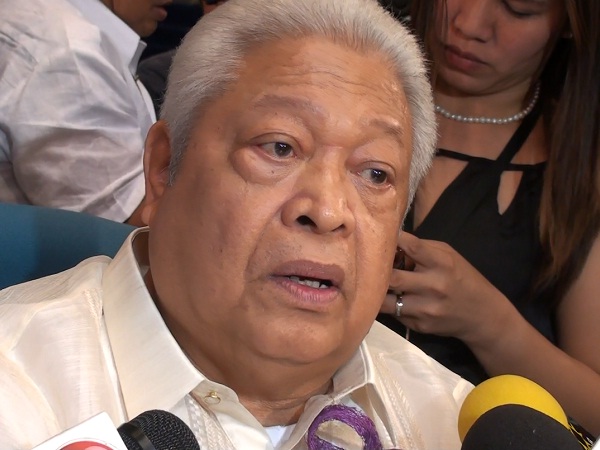
Albay Rep. Edcel Lagman. INQUIRER.net FILE PHOTO/RYAN LEAGOGO
President Rodrigo Duterte committed an unconstitutional act by creating, through an executive order, the Philippine Anti-Corruption Commission (PACC) out of “spite and vengeance” against perceived enemies, according to an opposition lawmaker.
Albay Rep. Edcel Lagman, leader of the “Magnificent Seven” independent bloc at the House of Representatives, said Mr. Duterte’s motive in creating the PACC afflicted the new body with “congenital infirmity.”
But an ally of Mr. Duterte, Rep. Bernadette Herrera-Dy, said the President was well within his right to exercise “presidential plenary power.”
The President’s Executive Order No. 43, Dy said, “basically copies” provisions of other executive orders that created the defunct Presidential Anti-Graft Commission.
Lagman said EO 43 violated the Constitution and duplicated the functions of the Ombudsman under the Ombudsman Act of 1989, or Republic Act No. 6770.
Flawed from the start
On Thursday, Malacañang announced that Mr. Duterte had signed EO 43, creating the PACC to be “solely dedicated” to investigating complaints against erring government officials, including those from independent constitutional bodies like the Ombudsman.
Mr. Duterte issued the EO after accusing the Ombudsman of corruption and selective justice following confirmation made by the antigraft body that it was investigating the President and his family’s finances.
The PACC, Lagman said, “is flawed from the beginning.”
“Aside from being born out of reprisal, the PACC violates the Constitution,” Lagman said.
The opposition legislator said the President, in his “inordinate rush to create the PACC,” overlooked the fact that he did not have any jurisdiction over constitutional offices.
Presidential appointees and principal officials of constitutional bodies are “outside of the executive department and beyond the reach of the President’s power of supervision and control,” Lagman said.
Empowering himself
Mr. Duterte’s defender, Dy, said the PACC empowered the President, who created it, to “get rid of corruption and correct ethics of people in government.”
She said the PACC jurisdiction extended to regulatory bodies, like Energy Regulatory Commission, Metropolitan Waterworks and Sewerage Systems and National Telecommunications Commission.
But she said she hoped the “EO can withstand any legal review as to its constitutionality.”
Dy said she also wished Mr. Duterte would appoint “the right people, very good people” to the PACC.